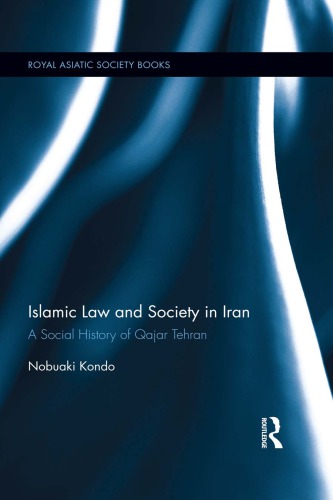

Most ebook files are in PDF format, so you can easily read them using various software such as Foxit Reader or directly on the Google Chrome browser.
Some ebook files are released by publishers in other formats such as .awz, .mobi, .epub, .fb2, etc. You may need to install specific software to read these formats on mobile/PC, such as Calibre.
Please read the tutorial at this link: https://ebookbell.com/faq
We offer FREE conversion to the popular formats you request; however, this may take some time. Therefore, right after payment, please email us, and we will try to provide the service as quickly as possible.
For some exceptional file formats or broken links (if any), please refrain from opening any disputes. Instead, email us first, and we will try to assist within a maximum of 6 hours.
EbookBell Team

4.7
66 reviewsThis is the first book on the relationship between Islamic law and the Iranian society during the nineteenth century. The author explores the legal aspects of urban society in Iran and provides the social context in which political process occurred and examines how authorities applied law in society, how people utilized the law, and how the law regulated society. Based on rich archival sources including court records and private deeds from Qajar Tehran, this book explores how Islamic law functioned in Iranian society. The judicial system, sharia court, and religious endowments (vaqf) are fully discussed, and the role of ‘ulama as legal experts is highlighted throughout the book. It challenges nationalist and modernist views on nineteenth-century Iran and provides a unique model in terms of the relationship between Islamic law and society, which is rather different from the Ottoman case.
Providing an understanding of this legal system in Iran and its role in society, this book offers a basis for assessing the motives and results of modern reforms as well as the modernist discourse. This book will be of interest to students of Middle Eastern and Iranian Studies.